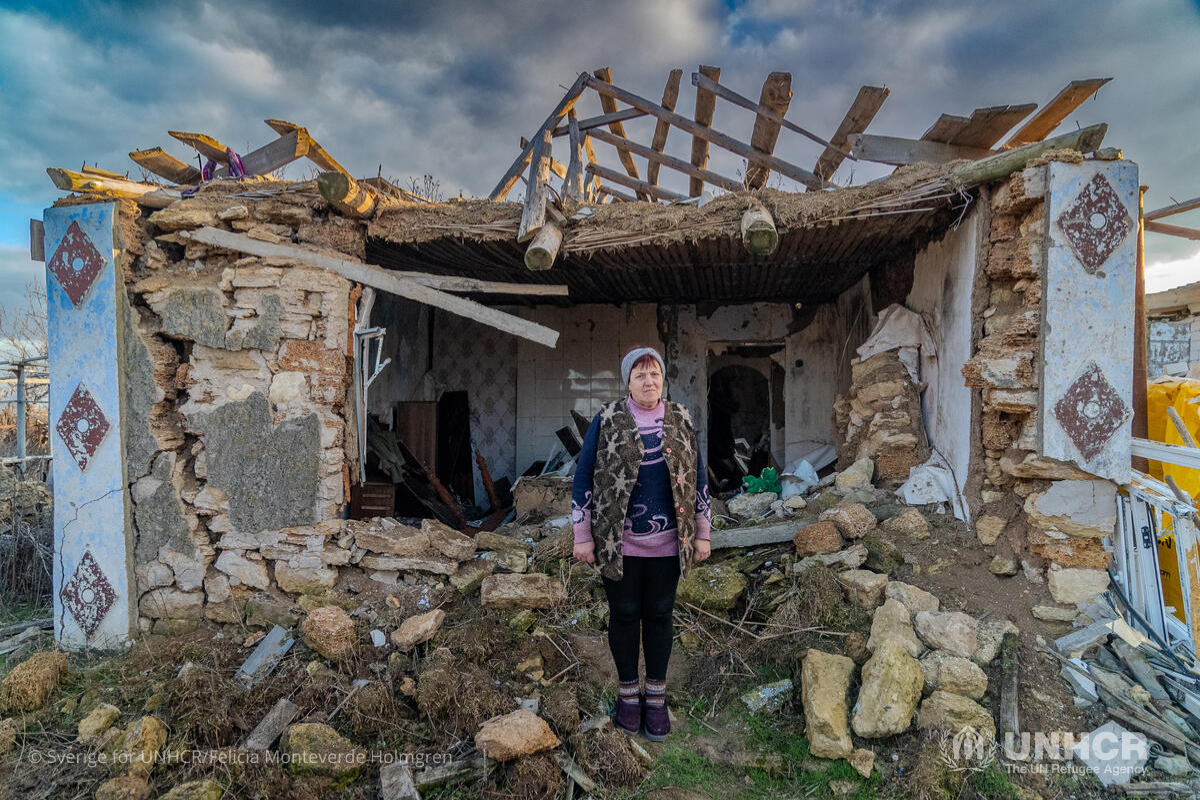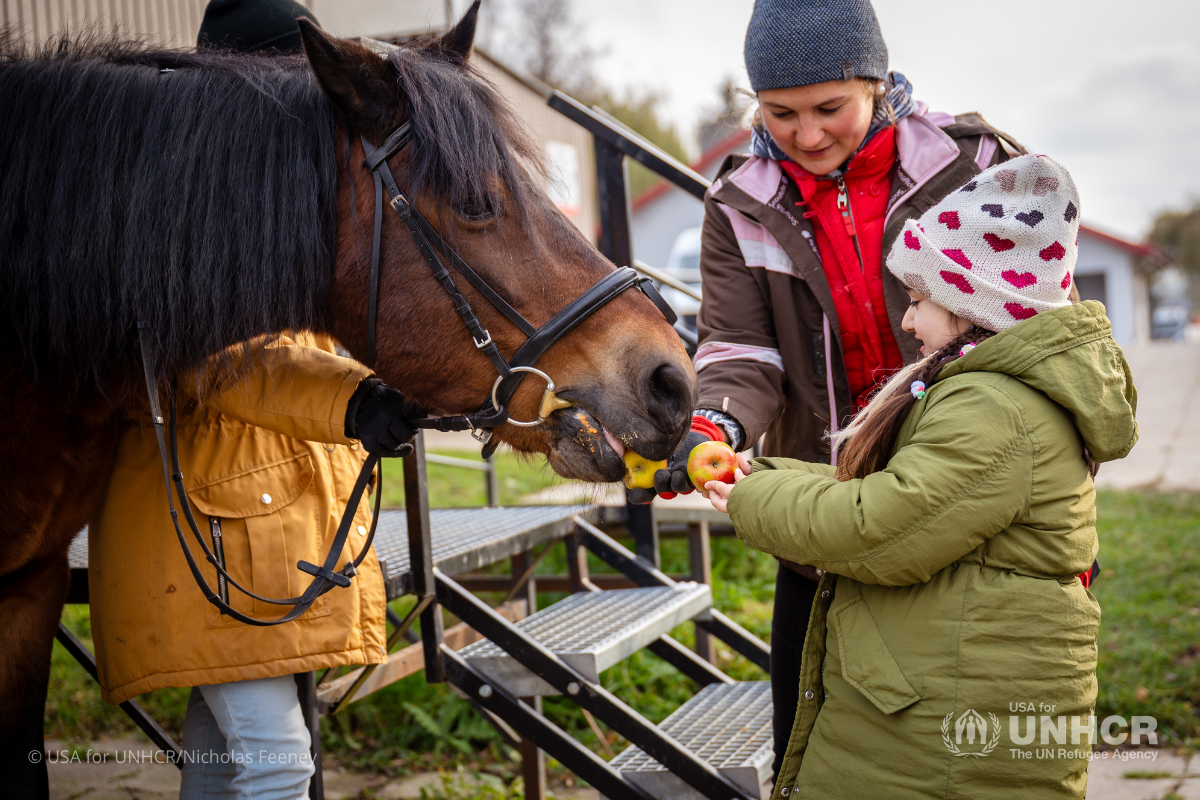Former refugees observe Ramadan in the United States, embracing long-held traditions to connect to home
Observing Ramadan far from home can be challenging for many resettled refugees. The family, friends and traditions that defined how they observed the holy month in their home country can be difficult or impossible to replicate here in the United States. Another challenge practicing Muslims in the U.S. face is one simply of awareness. Ramadan is typically recognized as a month when Muslims fast from sunrise to sunset for an entire month. But for Muslims, Ramadan is about much more than fasting, it’s a month of generosity, prayer and coming together with family and friends to celebrate long-held traditions.
We recently asked former refugees who now call the U.S. home about some of the challenges they face when observing Ramadan in the U.S. and about the traditions that keep them connected to their faith and family.
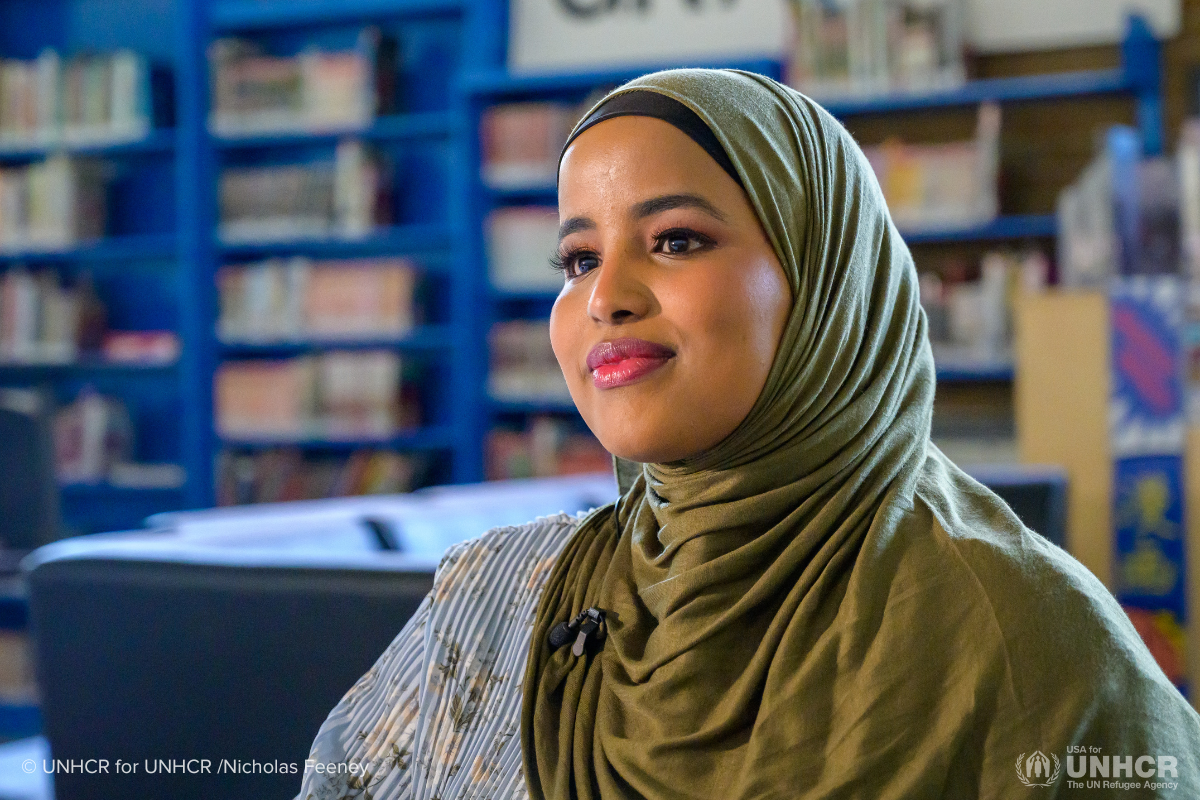
What are some of the challenges you’ve experienced while observing Ramadan in the U.S.?
When I am observing Ramadan, I fast between 15 to 16 hours [a day]. This means no eating or drinking between these hours so it’s natural to lack energy throughout the day. This lack of energy impacts my rigorous assignments such as project deadlines and final exams. I find that I don't perform well under these circumstances.
What do schools need to know about students observing Ramadan and how could they better support Muslim students?
Flexibility is much appreciated. I appreciate when my professors are flexible with assignment deadlines and give me the opportunity to turn in my work after I break my fast.
I also appreciate awareness campaigns from my school. When the deans send school-wide emails entailing the meaning of Ramadan and its importance. This effort to create awareness creates opportunities to have discussions with teachers and classmates.
What is your favorite part of Ramadan?
My favorite part of Ramadan is my spiritual journey. This is a month that I get to prioritize my mind, body and soul.
What is your message to Muslim refugees observing Ramadan far from home?
I am currently away from home, and it feels different to observe Ramadan without my family and community near me. I have made the effort to research local mosques and local groups that I can participate in during this month. Reach out to your new community to share memories of this blessed month.
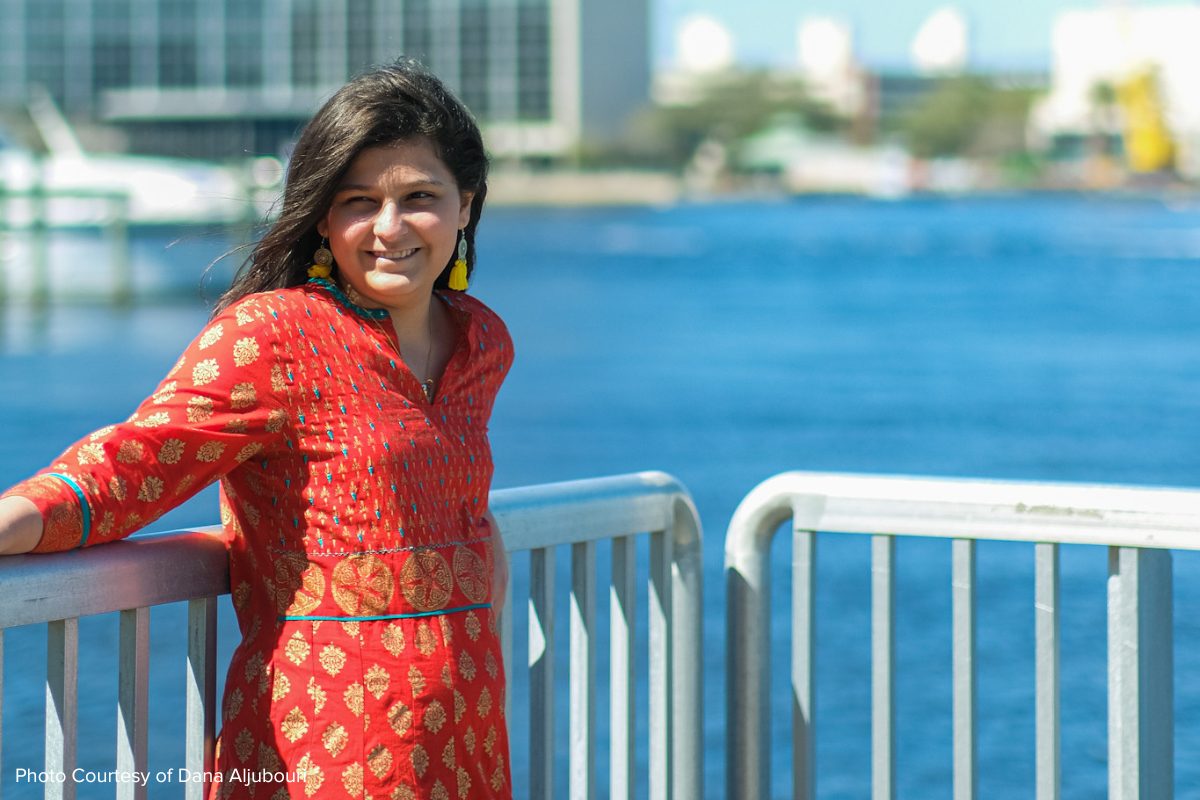
What traditions from celebrating Ramadan in Iraq does your family continue in the U.S.?
Many families celebrate Ramadan differently. For us, there are the things I personally enjoy and wait the whole year for Ramadan to live it again. During Ramadan, my family cooks delicious Iraqi meals and we create a full monthly menu that we all agree on.
During Ramadan, my parents, my sister and I pray daily together after we break our fast. I love when we do that and hearing my father reciting the Quran louder than normal gives me so much peace.
After breaking our fast we spend time drinking yummy Iraqi tea with delicious sweets like baklawa. We also invite friends over to educate them about our faith tradition and breaking bread with them has been so powerful to the community.
Are there lessons or messages of Ramadan that are important to you and inspire you?
There are many lessons but one of the lessons I have loved about Ramadan is to sympathize with the people who have less and can not afford to eat three times daily, our family will use this month to give. I see the month of Ramadan as 30 days of giving.
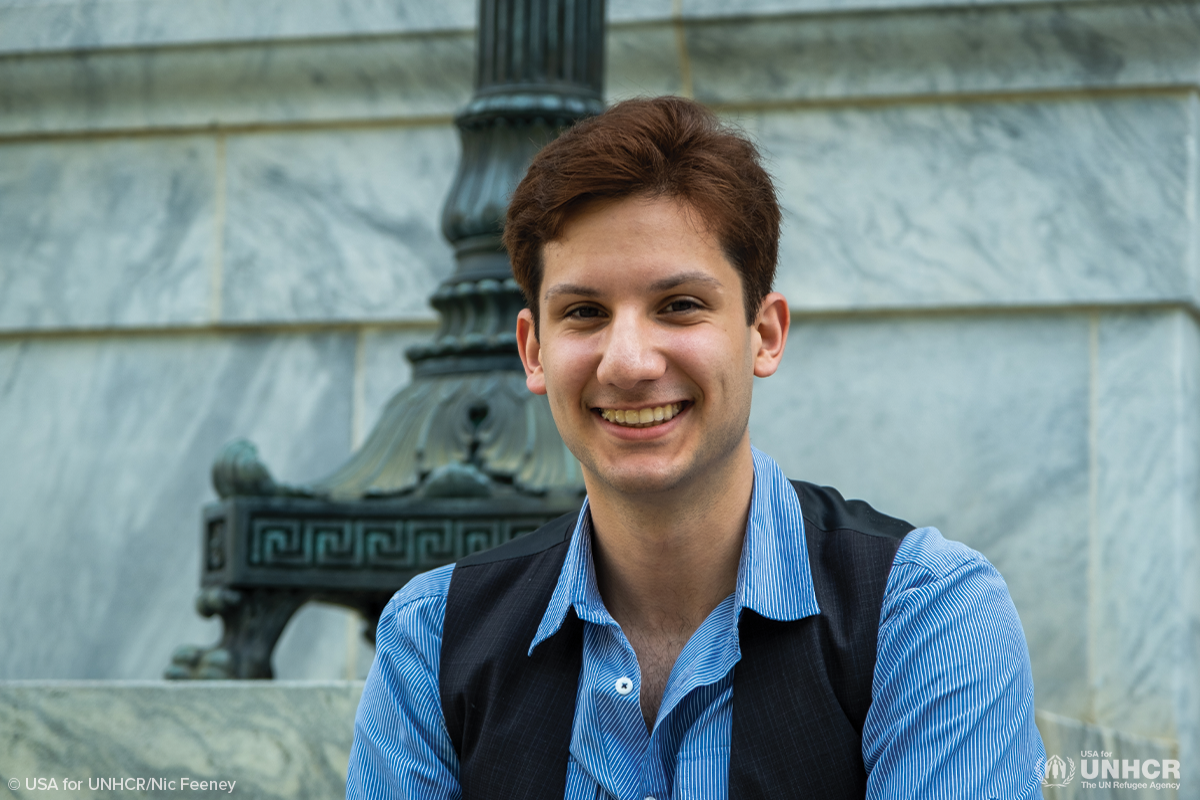
Are there lessons or messages of Ramadan that are important to you and inspire your work?
The lessons Ramadan teaches should not only be limited to one month. Ramadan is a stepping stone for developing patience, calm and generous personalities/tendencies. I try to extrapolate its goals and lessons to other months too because it makes me a better person every year. What’s the point of it if people are different during compared to after?
What are some of the differences in the way you observe Ramadan in the U.S. compared to when you were growing up in Iraq?
I really miss the rituals. Back home in Iraq before sunrise, someone with a drum would walk the streets and try to wake people up. We often got up and gave him some food for his fast as well. I also really miss the community. It’s nice for everyone to be in the same spirit during this month.
What is your message to Muslim refugees observing Ramadan far from home?
Hold on to what you can to your rituals and culture. It won’t feel the same, but at least not completely foreign. For me, it’s helpful to talk to my family and make tomato and lentil soup when I’m in a different state than my family members.
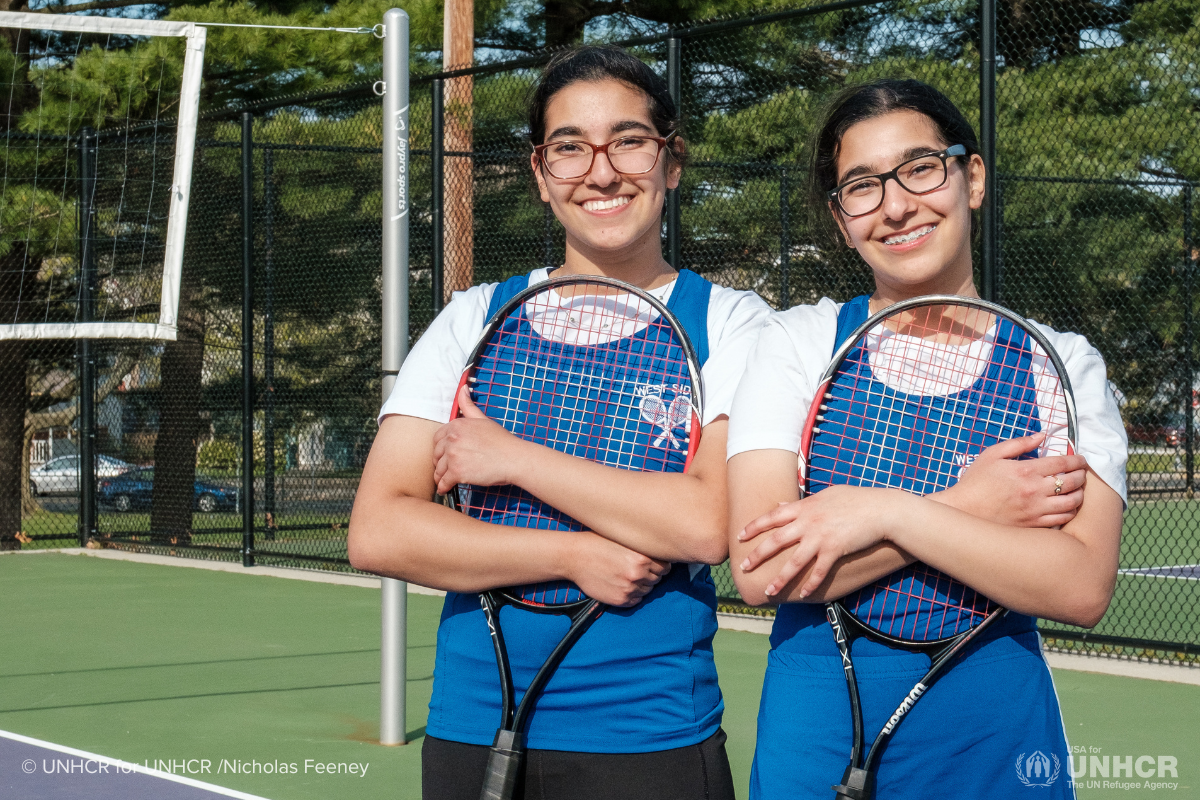
What are some of the challenges you’ve experienced while celebrating Ramadan in the U.S.?
Ghena: Playing a sport during Ramadan can be difficult and energy-draining. The main challenge is having to play sports while fasting. [While playing tennis] I have to keep a clear mindset and have to persevere throughout each point despite getting fatigued. It’s a challenge but I enjoy fighting through it, it shows I have a strong mentality and discipline.
Are there lessons or messages of Ramadan that are important to you and inspire you?
Haya: Ramadan is meant to cleanse your heart and take accountability for your actions. To obtain a clean and pure heart, during the month of Ramadan, charity, good deeds, repentance, and removal from forms of hatred. Ramadan brings the inspiration for strengthening bonds with Allah and improving your own character through discipline and patience.
Ghena: The lessons and messages from Ramadan that are important to me are to soften the heart and fill it with gratitude and sincerity. Ramadan allows us to keep an open mind and teaches us self-control and to always be thankful for all that we have as well as where we are now.
Support refugees during Ramadan...
This holy month of Ramadan, millions of refugee families across the globe will be celebrating in isolation and away from home. Becoming a USA for UNHCR monthly donor is the best way to let them know that they are not alone and give them hope of a better future. Every action that we take, big or small, can make a difference.
